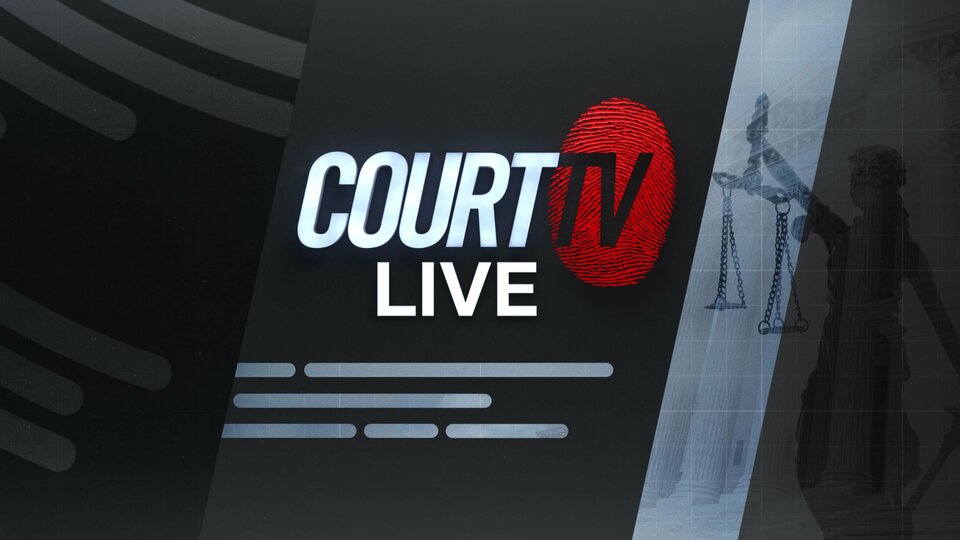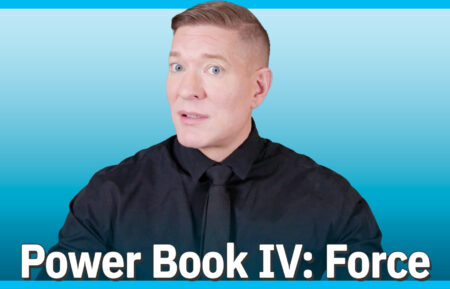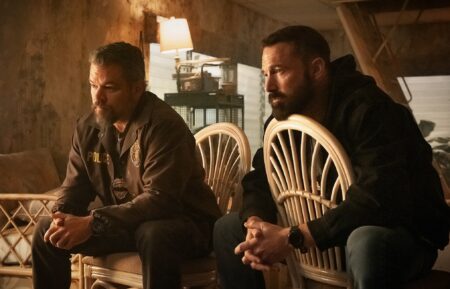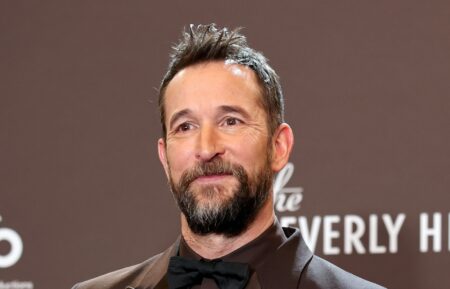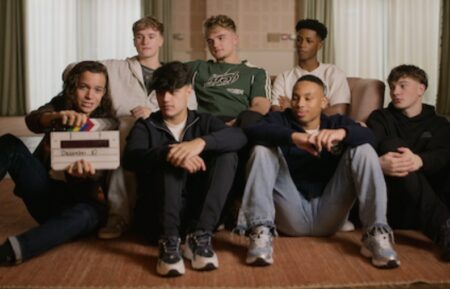Alec Baldwin Manslaughter Trial: Court TV Bosses Provide Insight Into Coverage
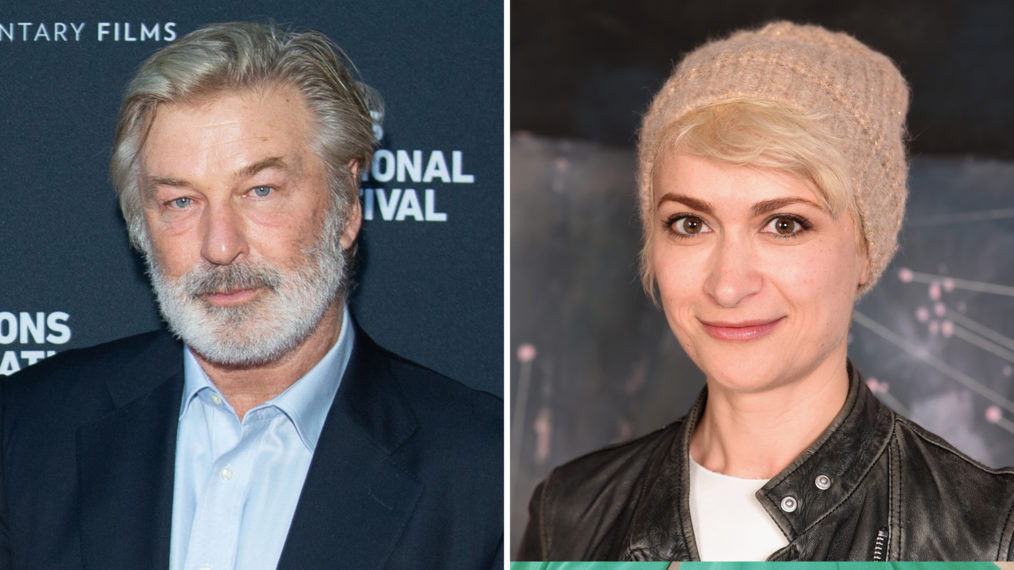
Q&A
Alec Baldwin is set to stand trial over the fatal 2021 shooting of Rust cinematographer Halyna Hutchins. The 66-year-old faces up to 18 months in prison if convicted. Baldwin was initially charged with two counts of involuntary manslaughter in January 2023 after holding a prop weapon on set that had real bullets. The shooting also injured director Joel Souza. Baldwin has maintained his not-guilty plea.
With jury selection scheduled to begin for the star’s trial on July 9, Court TV will provide the pool feed for the cameras in the courtroom. The network has also done a full-court press covering Baldwin’s case with plans to send extra reporters and bring special editions of their shows remotely from Santa Fe, New Mexico. Of course, celebrity cases are nothing new for Court TV as the network gained traction during the O.J. Simpson trial. The original network morphed into TruTV in 2008 before emerging as a digital broadcast network owned by Scripps Networks.
Grace Wong, senior director of courtroom coverage, negotiated the details and logistics of many cases to get the cameras into the courtroom. Among them former Minneapolis police officer Derek Chauvin and disgraced South Carolina lawyer Alex Murdaugh criminal cases, as well as the contentious Johnny Depp–Amber Heard civil case.
Here Wong and network head Ethan Nelson give us a peak into the inner workings of the network and what to expect from the Baldwin coverage.
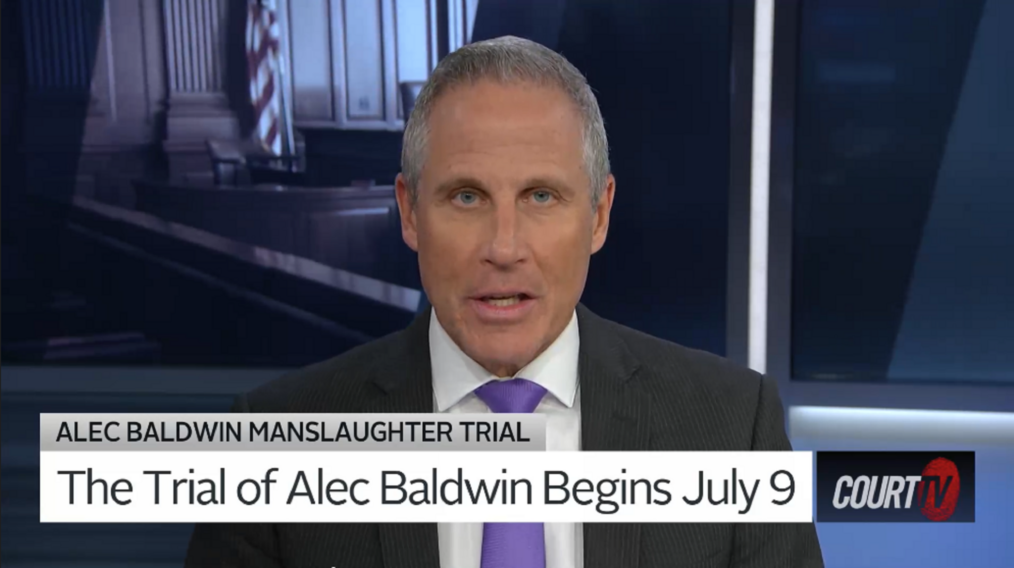
Court TV
What do you have planned for the Alec Baldwin case?
Ethan Nelson: We’re going very big with this trial. We are sending an anchor Ted Rowlands on Week 1 and maybe Week 2. Vinnie Politan will be doing arguments live in Week 2, which we believe will start July 15. We’re sending two correspondents to cover the full day and also do any other hits with Scripps or media outlets that want our insights. Court TV covers a lot of true-crime cases, but also some hugely high-profile cases throughout history. It’s part of Court TV’s DNA. Last year there was the Gwyneth Paltrow ski crash trial. Before that, it was the Johnny Depp and Amber Heard case, which had a massive international audience. Alec Baldwin is an A-list celebrity, so we’re focused on bringing this to a large audience.
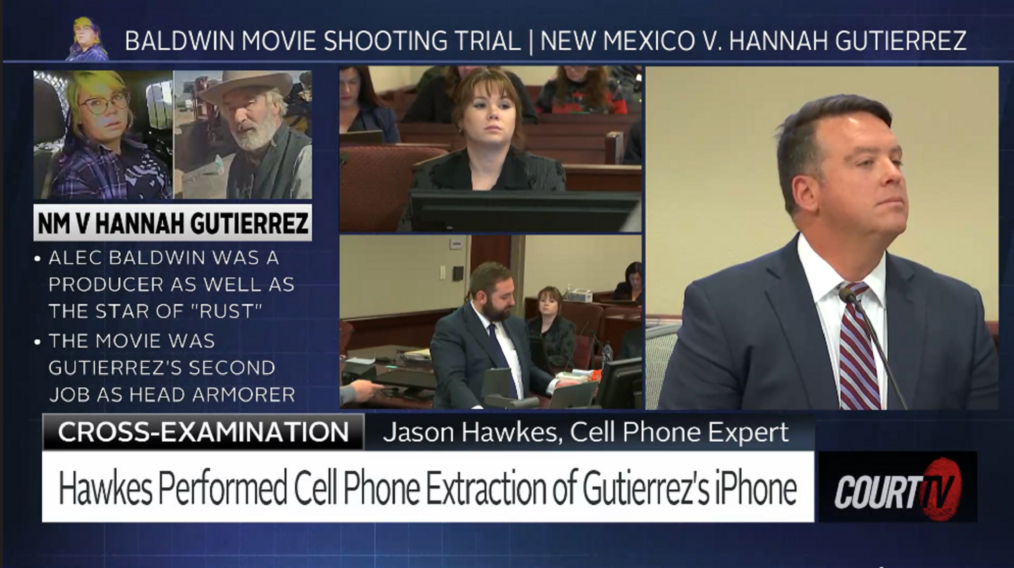
Court TV
What goes into getting these cameras in the courtroom?
Grace Wong: It’s a tremendous amount of work. It requires the work of photojournalists, engineers, and the cooperation of the court staff. You turn on your TV and expect to see a picture, but don’t realize behind the picture, what has gone on to get that picture to the airwaves. We have to size up the building to see what we can and can’t do in terms of transmission. Sometimes it requires some creativity on our part and engineering help. For instance, this is a pretty secure building, and hard to get cabling out. We have to be creative in terms of how we will get the picture out.
We work with the court and staff to use whatever resources are available to do that. It’s ingenuity that we set forth with all our big high-profile cases because we do have to work in the confines of the building and what we are permitted to do. There is also other business going on in the courthouse, so we have to be mindful of that as well. It’s a collaborative effort. A combination of our expertise and the particular court’s infrastructure and support staff.
Ethan: And there is no better person in the business to pull this off than Grace Wong. To have all these media outlets relying on all those feeds. We talk to all the networks. There is international interest, so it’s a big responsibility. Court TV does these big trials better than anybody.
What are your thoughts on the evolution of Court TV?
Ethan: What is interesting is the fragmentation of the media landscape. People have so many options for what to watch, but I still think there is interest in watching a collective moment. A live trial is something people can watch together and talk about in real-time and then comment on social media in real time. It creates a sense of community, more so than just streaming the latest movie or documentary. I think a live trial can generate a lot of interest in a fragmented media world. In terms of all the other streamers, more and more are running live trials. Court TV separates itself by having a brilliant lineup of anchors, many of whom are lawyers. We bring in top-notch guests to add value to the experience.
Court TV came back at a time when viewing habits had changed.
Ethan: A lot of what we are doing now I give a nod to the old Court TV in many ways. They set the stage for what is now an iconic network. We’re trying to carry on that torch and strengthen that name in the industry. We take great pride and are laser-focused we uphold that value Court TV has created since 1991.
Grace: We have evolved stylistically and technologically. You look at our early trials. We always tried to adapt to the court’s sensitivities. We’ve evolved to be more mobile, more discreet, and more adaptable to the courtroom.
Ethan: The technological evolution has been remarkable to see. The editorial vision has remained. Our distribution model has changed. We just finished the Karen Read trial. It not only broadcasts on linear and connected TV channels like Roku, Pluto, and all the biggies. We also streamed it on our website and YouTube and got huge numbers. Lots of people watching that way, which is a raw format. There was a great community of people chatting and talking about it. We’ve learned some Court TV watchers will stream on their computer to chat and also watch on TV to get the commentary around the trial. There are many two-screen watchers.
Grace: People remain interested in trials because we are presenting them the story from beginning to end. They become invested in that story and the characters. They want to see how that story is going to end. We don’t know until 12 people decide.
Ethan: The storytelling has been a real focus, especially in the last couple of years. We’ll give side panels with contextual information so that whenever they join the coverage, they’ll be able to jump into the trial and understand what is going on. We want to make sure we are serving people whenever they are tuning into the trial.
For you, what makes the Alec Baldwin trial stand out?
Grace: Alec Baldwin is such a high-profile figure. His celebrity status makes it different. This is a criminal charge. I think the expectation was there would be some type of plea bargain or somehow his side would successfully get the case dismissed, and they haven’t been able to do that. That in itself is a pretty dramatic development in the case. They charged him, dropped the charge, and brought the charge back. It’s these developments that made it so different.
Ethan: It’s also interesting because Mr. Baldwin has spoken publically about it. A lot of people have a preconceived notion of what happened. Now we’re really going to find out what happened. I think that is very intriguing.
Visit Court TV for coverage.


